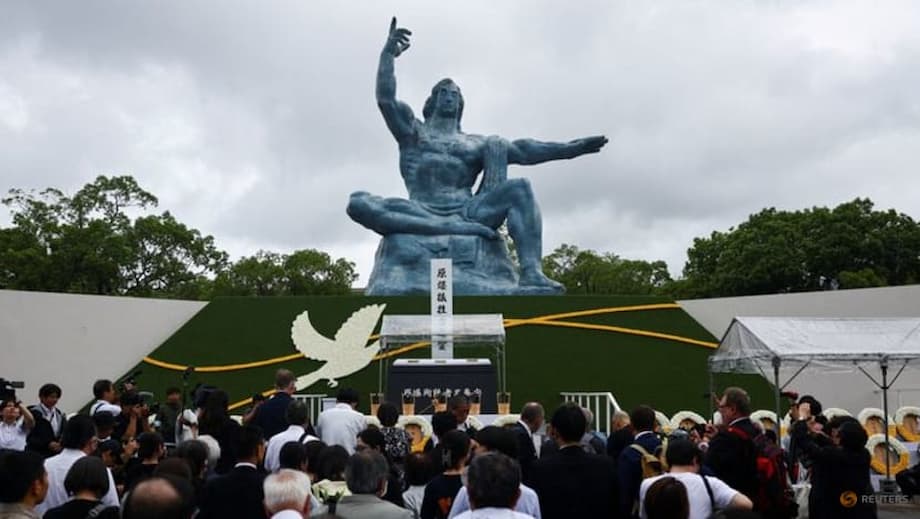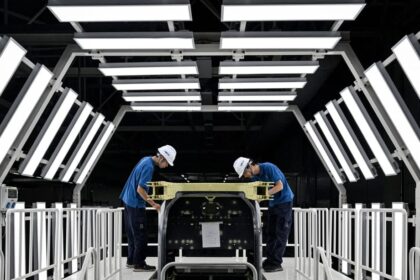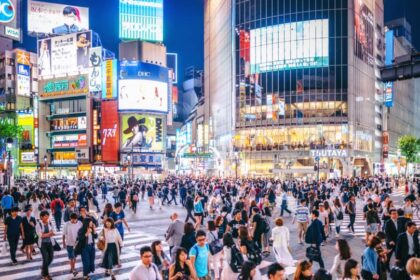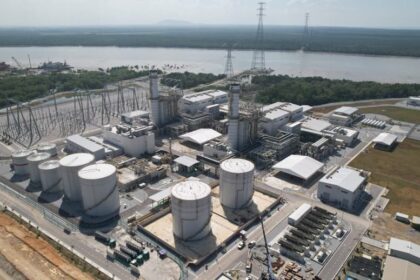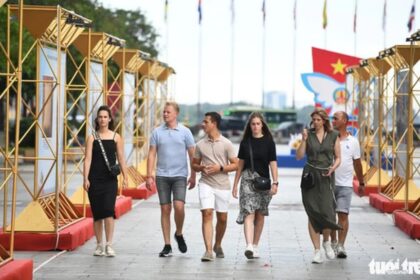Japan Reaffirms Anti-Nuclear Stance Amid Security Fears and Regional Tensions
Despite rising doubts about U.S. security guarantees and growing nuclear threats in Asia, Japan remains committed to non-nuclear principles and international disarmament.
Japan, the only country to have suffered atomic bomb attacks, is once again at the center of a heated debate over nuclear weapons. In 2025, as the world marks the 80th anniversary of the bombings of Hiroshima and Nagasaki, Japanese leaders and citizens are grappling with renewed security anxieties. These concerns are fueled by North Korea’s expanding arsenal, China’s military buildup, and, most recently, doubts about the reliability of the United States’ nuclear umbrella following political shifts in Washington. Despite these pressures, Japan’s government and public remain firmly opposed to developing or hosting nuclear weapons, reaffirming a decades-long commitment to non-proliferation and disarmament.
- Japan Reaffirms Anti-Nuclear Stance Amid Security Fears and Regional Tensions
- Why Is the Nuclear Debate Resurfacing in Japan?
- Japan’s Unique Historical and Moral Position
- Legal and Political Barriers to Nuclear Armament
- Japan’s Role in Global Disarmament and Non-Proliferation
- Regional Dynamics: How Neighbors View Japan’s Nuclear Debate
- Japan’s Security Path: Strengthening Alliances, Not Nuclearization
- Key Points
Why Is the Nuclear Debate Resurfacing in Japan?
The specter of a nuclear arms race in East Asia has loomed since North Korea’s first atomic test in 2006. In recent years, the debate has intensified, not only in South Korea—where public support for nuclear armament is higher—but also in Japan. The catalyst for this renewed discussion is a growing sense of uncertainty about the United States’ willingness to defend its allies, especially after the return of Donald Trump to the White House and his unpredictable approach to alliances.
Japanese lawmakers, particularly from smaller opposition parties like Sanseito, have called for a “Plan B” to ensure Japan’s security in the event that U.S. protection falters. Some have even suggested revisiting the country’s longstanding ‘Three Non-Nuclear Principles,’ which prohibit the production, possession, or hosting of nuclear weapons. However, these voices remain a minority both in parliament and among the general public.
At the same time, technical experts acknowledge that Japan possesses the technological capability to develop nuclear weapons relatively quickly if it chose to do so. The country has a robust civilian nuclear industry and significant stockpiles of plutonium. Yet, the legal, political, and diplomatic barriers to such a move are formidable.
Impact of U.S. Policy Shifts
Recent U.S. foreign policy has rattled allies across Asia and Europe. President Trump’s criticism of NATO and direct engagement with Russia and North Korea have undermined confidence in American security commitments. Japanese officials have observed similar doubts among European allies, prompting some to consider previously unthinkable options, such as developing their own nuclear deterrents or participating in nuclear sharing arrangements akin to those in NATO.
According to Byong-Chul Lee of the Institute of Far Eastern Studies in Seoul, “Trump’s provocative and inconsistent rhetoric has left allies’ trust in the U.S. deterrence deeply shaken.” This uncertainty has led to discussions in Japan about reinforcing the credibility of the U.S. nuclear umbrella, including the controversial idea of allowing U.S. nuclear weapons on Japanese soil.
Japan’s Unique Historical and Moral Position
Japan’s nuclear debate is shaped by its unique history as the only nation to have experienced nuclear attacks. The bombings of Hiroshima and Nagasaki in August 1945 killed over 100,000 people and left deep scars on the national psyche. The memory of this devastation is a powerful force in Japanese society, fueling strong public opposition to nuclear weapons.
Survivors of the atomic bombings, known as hibakusha, have been vocal advocates for disarmament. At a recent commemorative event, Hiroshima Mayor Kazumi Matsui warned against the growing acceptance of military build-ups and nuclear weapons for national security, citing ongoing conflicts in Ukraine and the Middle East. He urged the Japanese government to sign and ratify the Treaty on the Prohibition of Nuclear Weapons (TPNW), a step Tokyo has so far declined due to its reliance on U.S. deterrence.
Hiroshima Mayor Kazumi Matsui stated, “We must never forget the reality of the atomic bombings. Accepting nuclear weapons as a means of security only increases the risk of repeating past tragedies.”
Recent polling shows that over 70 percent of Japanese citizens support ratifying the TPNW, underscoring the enduring strength of anti-nuclear sentiment.
The Enduring Debate Over the Atomic Bombings
The morality and strategic necessity of the atomic bombings remain subjects of debate, both in Japan and abroad. While some argue the bombings forced Japan’s surrender and saved lives by avoiding a costly invasion, others contend that alternatives existed and that the attacks constituted war crimes. This ongoing debate reinforces Japan’s commitment to preventing the use of nuclear weapons in any future conflict.
As historian Kai Bird noted, “From the beginning, it was understood that this was something different, a weapon that could destroy entire cities.” The bombings have become symbols of the dangers and human costs of nuclear warfare, shaping Japan’s postwar identity and its leadership in global disarmament efforts.
Legal and Political Barriers to Nuclear Armament
Even if Japan’s leaders wanted to pursue nuclear weapons, they would face significant legal and diplomatic obstacles. Article 9 of Japan’s Constitution, adopted after World War II, explicitly renounces “the threat or use of force as a means of settling international disputes” and denies the right of belligerency. The 1955 Atomic Energy Basic Act further prohibits any military use of nuclear technology.
Japan is also a signatory to the Treaty on the Non-Proliferation of Nuclear Weapons (NPT), which legally binds it not to receive, manufacture, or seek assistance in developing nuclear arms. In 1998, Japan signed an Additional Protocol with the International Atomic Energy Agency, granting expanded verification powers to ensure that civilian nuclear materials are not diverted for military purposes.
Beyond these legal commitments, Japan has long upheld the Three Non-Nuclear Principles: not possessing, not producing, and not permitting the introduction of nuclear weapons. These principles are deeply embedded in Japan’s political culture and have been repeatedly reaffirmed by successive governments.
International and Regional Consequences
Pursuing nuclear weapons would carry severe international consequences for Japan. China would likely view Japanese nuclearization as a major provocation, potentially escalating tensions and transforming the already strained relationship into outright hostility. North Korea could respond with increased military provocations, while South Korea might feel compelled to develop its own nuclear arsenal, triggering a regional arms race.
Such developments could destabilize the Taiwan situation and bring the region closer to conflict. The United States, which maintains about 60,000 military personnel in Japan, would be placed in a difficult position, potentially forced to reconsider its alliance commitments. The broader international community would likely impose swift economic sanctions, isolating Japan diplomatically and damaging its global standing.
Japan’s Role in Global Disarmament and Non-Proliferation
Despite its reliance on the U.S. nuclear umbrella, Japan has consistently championed international non-proliferation efforts. Each year, Tokyo advocates for a nuclear-free world at the United Nations. At the 79th UN General Assembly, Prime Minister Kishida Fumio emphasized Japan’s determination to play a leading role in disarmament, promoting a “Free and Open Indo-Pacific” and upholding the rule of law.
Prime Minister Kishida Fumio’s representative stated at the UN, “Under the Hiroshima Action Plan, Japan continues to lead efforts toward a world without nuclear weapons and will advance nuclear disarmament at the 2026 Review Conference of the Treaty on the Non-Proliferation of Nuclear Weapons.”
Japan is also a co-author of a draft UN resolution titled “Steps to Building a Common Roadmap Towards a World Without Nuclear Weapons.” The country regularly calls for strengthening the NPT and increasing transparency among nuclear-armed states.
Foreign Minister Iwaya Takeshi, speaking at the 2025 NPT Preparatory Committee, urged all parties to “cherish and exercise the spirit of dialogue and collaboration” to restore and strengthen international cooperation on disarmament. He highlighted the importance of the NPT as the only universal framework for nuclear disarmament and non-proliferation.
Voices from Civil Society and Survivors
Japanese civil society organizations, especially those representing atomic bomb survivors, play a prominent role in advocating for disarmament. At the 2025 NPT Preparatory Committee, the Japan Confederation of A- and H-Bomb Sufferers Organizations (Nihon Hidankyo) delivered statements urging world leaders to fulfill their responsibility to eliminate nuclear weapons.
Hiroshi Kanamamoto, representing Nihon Hidankyo, told the NPT committee, “We, the survivors, have lived with the pain and consequences of nuclear war. Our message is clear: humanity cannot survive another nuclear attack.”
These voices reinforce the moral and humanitarian arguments against nuclear armament, reminding policymakers of the real-world consequences of nuclear conflict.
Regional Dynamics: How Neighbors View Japan’s Nuclear Debate
Japan’s nuclear debate does not occur in isolation. Regional dynamics, especially the actions of North Korea and China, heavily influence public and political discourse. North Korea’s continued missile tests and nuclear development have heightened security anxieties in both Japan and South Korea.
China, meanwhile, is rapidly expanding its own nuclear arsenal and has expressed strong opposition to any moves by its neighbors to develop nuclear weapons. Chinese analysts view U.S. extended deterrence measures, such as deploying strategic bombers and nuclear-armed submarines to the region, as undermining the non-proliferation regime in Northeast Asia. They are also wary of closer trilateral cooperation among the United States, Japan, and South Korea, fearing the emergence of an “Asian NATO.”
In South Korea, public support for nuclear armament is higher than in Japan, driven by similar doubts about U.S. security guarantees. However, Chinese analysts generally assess the likelihood of South Korea or Japan developing nuclear weapons as low, citing the binding constraints of U.S. alliances and the risk of international sanctions.
Generational Shifts and Public Opinion
While the majority of Japanese remain opposed to nuclear weapons, there are signs of generational change. Younger Japanese, less directly connected to the memory of Hiroshima and Nagasaki, may be more open to reconsidering security options. However, polling still shows strong support for non-nuclear principles across age groups.
In the United States, public opinion on the use of atomic bombs in World War II has shifted over time. While initial approval was high, recent surveys show Americans are now divided, with younger generations more likely to question the justification for the bombings. These changing attitudes may influence future debates about nuclear policy and deterrence.
Japan’s Security Path: Strengthening Alliances, Not Nuclearization
Despite the pressures and uncertainties, Japan’s government has repeatedly reaffirmed its commitment to a non-nuclear path. Earlier this month, the Prime Minister’s Office stated that Japan “will not possess nuclear weapons,” has no intention of revising its Three Non-Nuclear Principles, and remains dedicated to “a world without nuclear weapons.”
Instead of pursuing nuclear arms, Japan is focusing on strengthening existing security partnerships, enhancing its conventional military capabilities, and leading global disarmament initiatives. This approach seeks to balance the need for credible deterrence with the country’s legal, moral, and diplomatic commitments.
Experts warn that any move toward nuclearization would make Japan less safe, increase regional tensions, and risk triggering a dangerous escalation cycle. The costs—diplomatic isolation, economic sanctions, and the potential for armed conflict—would far outweigh any perceived security benefits.
Key Points
- Japan faces renewed debate over nuclear weapons amid regional tensions and doubts about U.S. security guarantees.
- Public and political opposition to nuclear armament remains strong, rooted in Japan’s unique history as the only nation to suffer atomic bomb attacks.
- Legal barriers, including the Constitution and international treaties, make nuclearization highly unlikely.
- Pursuing nuclear weapons would provoke severe international consequences, including strained relations with China, North Korea, and the United States.
- Japan continues to champion global disarmament and non-proliferation efforts at the United Nations and through diplomatic initiatives.
- Survivors and civil society organizations play a vital role in advocating for a nuclear-free world.
- The government has reaffirmed its commitment to the Three Non-Nuclear Principles and a world without nuclear weapons.


